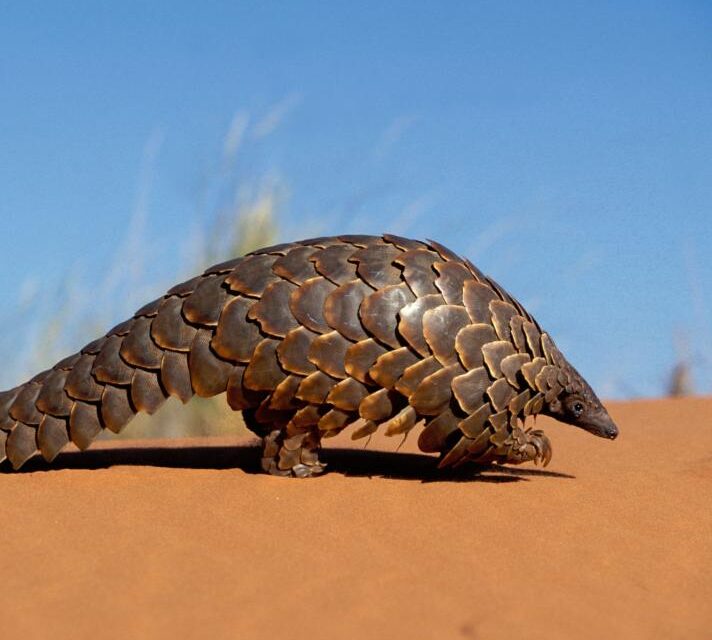Help our local partners realise their vision of hope for their communities

Pangolins are known for their gentle and unassuming character, even the way they move suggests their humility. Sadly, precious pangolins are the world’s most trafficked mammal which has pushed the species to extinction. The pangolin is a well-known commodity in Asia, however, the instability of South Sudan since its genesis, has led to a severe decrease in funding for conservation organisations, as well as thoroughness of border checking, meaning that more people and groups are partaking in and getting away with pangolin trafficking.
Although all eight species of pangolin are protected under national and international laws, it is a well-known thriving trade in Asia and other parts of Africa, which has existed for decades. Cases of pangolin trafficking in South Sudan were only confirmed in a study released in 2019, where they found seven cases of the trade.
“For the first time, we have been able to show that trafficking of pangolins is occurring in and through South Sudan,” said Daniel Ingram, a wildlife conservationist at University College London, who was involved in the study.
The seven cases of illegal possession were reported at road checkpoints, a national park, an airport, and a hotel. With three seizures of pangolin meat, two of the animal’s scales, and two live animals being trafficked through the capital city, Juba.
In a statement made by WWF’s Senior Policy Advisor, Paul De Ornellas said that “this year we have seen record-breaking amounts of pangolin meat and scales seized by law enforcers.” Like most crimes, it is believed that this is the tip of the iceberg and many many more undetected cases are likely.
The civil war, which started in 2011, has created a “highly unstable environment for the country’s human and animal residents alike” and has drastically and negatively impacted the enforcement and monitoring capabilities and efforts of the South Sudan National Wildlife Service and other law enforcement agencies to monitor pangolin trafficking. The armed conflict in the country has led to expanded uncontrolled poaching and trafficking of already endangered wildlife populations.
It is thought that pangolins are trafficked by road across the borders with Uganda, Democratic Republic of Congo, Ethiopia and other neighbouring nations. This journey is made simple by the lack of, and in some places a complete absence of, border control. This is an outcome of an unstable, in-cohesive and unorganised government that failed to properly screen what enters and what leaves the country, leaving the window wide open for any illegal trade and trafficking.
Pangolins are part of an illegal trade worth between US$7-$23 billion annually. Therefore, it is not shocking for South Sudanese individuals to get involved in such a fruitful business when 80% of the population is income-poor (living on under $1 a day). Additionally, with the rise in living in South Sudan currently, caused by bad harvests, economic and political unrest is it likely that more groups from the nations will get involved in the trade in an attempt to escape poverty.

What are they desired for?
Consumers are interested in pangolins for a number of reasons. In China, the largest consumer market for the animal, the meat is a delicacy which has caused the demand on the black-market to soar. Additionally, many believe in the power of their scales, which make up 20% of their weight. Some say that they bring luck and thought to neutralize witchcraft and evil spirits when mixed with bark from particular trees. Others believe that the smoke from their scales improves cattle health, keeps lions away and can cure ailments such as nose bleeds. Their blood is also believed by some to be a treatment for various ailments.
Just like many proposed solutions for other illegal animal trades, education is paramount. It is crucial educate people of the pangolin’s value for the environment, the fact that they are almost extinct, and that there are other, more effective, ways to treat ailments or other non-endangered species to eat.
There is an obvious issue with education to those whose beliefs are entrenched in their culture and history. However, groups such as WWF and African Wildlife Foundation are working towards practical and effective methods to try and prevent further destruction of the species.
These modest creatures are preyed upon by the likes of leopards and hyenas but their largest threat by far is humans.